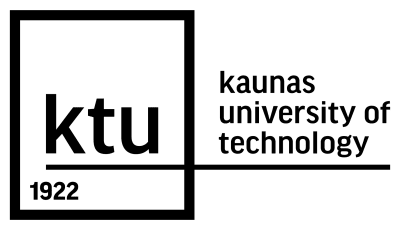
PhD in Chemistry
Kaunas University of Technology

Key Information
Campus location
Kaunas, Lithuania
Languages
English
Study format
On-Campus
Duration
4 years
Pace
Full time
Tuition fees
Request info
Application deadline
20 Jun 2024
Earliest start date
01 Sep 2024
Introduction
Possibilities to attain a European Ph.D. (Doctor Europeus) in partnership with PCAM (Physics and Chemistry of Advanced Materials Network).
The objective of the doctoral study program in chemistry is to train doctors of science, who are ready for a research career, able to work as scientists and educators. The program aims to expand their knowledge in chemistry and related fields, at the same time developing their skills of critical thinking, creativity, training their ability to seek original and independent solutions.
The study program lasts 4 years and is completed by a public defense of the doctoral dissertation. The program of study is adapted to the needs of individual students, depending on their prior training and research interests. Study and research opportunities for doctoral students are comprehensive and interdisciplinary, covering inorganic, organic, inorganic, physical, analytical, computational, and theoretical chemistry, food chemistry, materials chemistry, atmospheric and environmental chemistry. Research is typically started during the first year of study. However, during the first two years of studies, Ph.D. students also have to take doctoral modules in broad areas or special topics (30 ECTS in total). Subsequent years focus on thesis research only and writing the dissertation. Original research, performed under the direction of a supervisor and consultants, plays a major role in this degree. The ground of the final dissertation has to be based on at least 2 published original scientific publications (one of them may be accepted only for publication) in high-rank international chemistry or material science journals, where the Ph.D. student must be the first author of the article and the corresponding presentations in international scientific conferences.
Admissions
Scholarships and Funding
Students admitted to state-funded places of doctoral studies receive a monthy scholarship. PhD students may receive additional funding for their scientific activies, excellent results of studies and scientific research or for participation in the international scientific conferences, seminars, and science competitions.
Curriculum
Study program modules
Main modules
- Advanced Inorganic Chemistry
- Advanced Organic Chemistry
- Methods of Modern Spectral Analysis
Alternative modules
- Basic Theory of Polymer Chemistry and Physics
- Chemistry of Chalcogens
- Chemistry of Nitrogen-Containing Heterocyclic Compounds
- Color Chemistry
- Modern Chromatographic Methods
Elective modules
- Advanced Food Chemistry and Biochemistry
- Advanced Inorganic Chemistry and Technology
- Advanced Polymer Chemistry and Technology
- Chemical Engineering
Core skills modules
- Academic and Technical Research Writing
- Design Thinking in Research
- Digital Support and Tools for Research Writing and Publication
- Research Data Management
- Research Ethics
- Research Project grant Management
- Science Communication for the Public
- Systematic Literature Review
Program Outcome
Doctor of Science
Program Tuition Fee
Program delivery
This program is delivered in both English and Lithuanian.